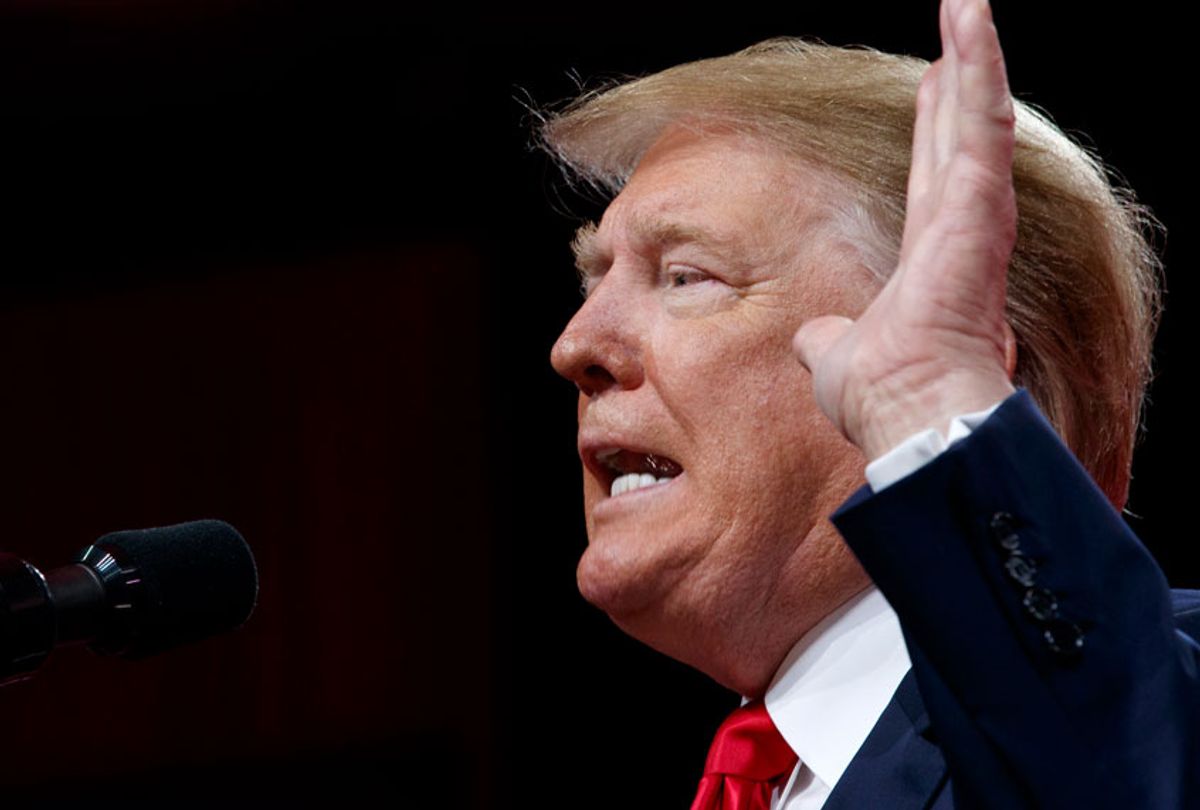The Trump administration on Monday officially designated Iran’s Revolutionary Guard as a terrorist organization. But reporting from The New Yorker indicates that President Donald Trump could have business entanglements with the foreign military group.
Trump and his eldest daughter developed a hotel in Azerbaijan that appears to be a corrupt operation run by a family known as “the Corleones of the Caspian” with links to Iran’s Revolutionary Guard.
The Trump International Hotel & Tower Baku — conceived in 2008 as a luxury apartment building but converted in 2014 into a hotel — has never opened, and both local observers and international experts are baffled by the building’s existence, reported Adam Davidson of The New Yorker in 2017.
The project was intended as an “ultra-luxury property” with both hotel and residential space, but both its location and timing are odd, according to the report.
Trump Tower Baku is located in an underdeveloped part of the city’s downtown, across the street from a discount shopping center and miles away from the main business district.
“Why would someone put a luxury hotel there?” said former top official in Azerbaijan’s Ministry of Tourism. “Nobody who can afford to stay there would want to be in that neighborhood.”
The Trump Organization announced the project would be converted into just a hotel in 2014, after a construction boom had ended in Baku and luxury hotel occupancy rate hovered around 35 percent, the magazine reported.
A Cornell University expert told The New Yorker that developers of five-star hotels typically must demonstrate an average occupancy rate of at least 60 percent over 10 years.
Newsweek‘s Kurt Eichenwald reported in September 2017 that Trump’s financial filings show he’s partners in the Baku deal with the son of Azerbaijan’s transportation minister.
U.S. officials believe that official, Ziya Mammadov, laundered money for the Iranian military, although no formal charges were brought against him or his son, Anar Mammadov — who is Trump’s partner in the Baku hotel venture.
The New Yorker examined Trump’s ties to Ziya Mammadov — one of the wealthiest and most powerful oligarchs in one of the world’s most corrupt nations — and his brother, Elton Mammadov, an influential member of the Azerbaijani parliament, who signed contracts for the project and founded Baku XXI Century, which owns the tower.
The Mammadov family, described by Foreign Policy magazine as “The Corleones of the Caspian,” has a reputation for using their government positions to enrich themselves and their partners — which includes construction firms tied to Iran’s Revolutionary Guard.
The Trump administration has now condemned that group — which has been accused of drug trafficking, sponsoring terrorism abroad and money laundering — as a terrorist organization.
“This unprecedented step, led by the Department of State, recognizes the reality that Iran is not only a State Sponsor of Terrorism, but that the IRGC actively participates in, finances, and promotes terrorism as a tool of statecraft,” Trump said in a statement.
The Baku development was the subject of numerous reports after Trump announced his presidential campaign in 2015, and the Trump Organization’s chief legal officer, Alan Garten, dismissed any concerns by saying the company never engaged directly with Mammadov.
Garten claimed Trump played only a passive role in the Baku development by licensing his name for use by Mammadov’s son, for which he was paid at least $2.8 million, according to limited public filings.
Other documents suggest Trump was paid an additional $2.5 million for the use of his name in 2012, and the future U.S. president also signed a contract to manage the hotel after it opened for an undisclosed fee tied to the venture’s performance.
Garten announced a month after Trump’s election that the Trump Organization had severed ties with the hotel, but The New Yorker reported those claims were incomplete and inaccurate.
Jan deRoos, the Cornell professor, said the Trump Organization’s interest in the Baku project — which was overseen by Ivanka Trump — was atypical and “very, very intense.”
That close involvement may open up the Trump Organization to criminal prosecution under the Foreign Corrupt Practices Act, which was passed in 1977 to forbid American companies from rewarding corrupt foreign officials — even if they did so unwittingly.
Garten all but admitted corruption was involved with the project — “I’m not going to sit here and defend the Mammadovs,” he said — but he insisted the Trump Organization should be exempt from prosecution because the company didn’t control the project and didn’t pay money to anyone.
However, a legal expert who specializes in the foreign corruption law dismissed those claims as nonsense.
“You can’t go into business deals in Azerbaijan assuming that you are immune from the FCPA, nor can you escape liability by looking the other way,” said Jessica Tillipman, an assistant dean at George Washington University Law School. “The entire Baku deal is a giant red flag — the direct involvement of foreign government officials and their relatives in Azerbaijan with ties to the Iranian Revolutionary Guard. Corruption warning signs are rarely more obvious.”
Trump complained about the law during a phone-in appearance on CNBC in May 2012, the month before the Baku deal was completed.
“Every other country goes into these places and they do what they have to do,” Trump said. “It’s a horrible law and it should be changed.”
He complained that American companies that refused to give bribes — and The New Yorker reports on duffel bags of cash changing hands during construction — would “do business nowhere.”
“There is one answer — go to your room, close the door, go to sleep and don’t do any deals, because that’s the only way,” Trump whined to CNBC. “The only way you’re going to do it is the other way.”
(Editor’s note: A previous version of this story was published in 2017.)



Shares